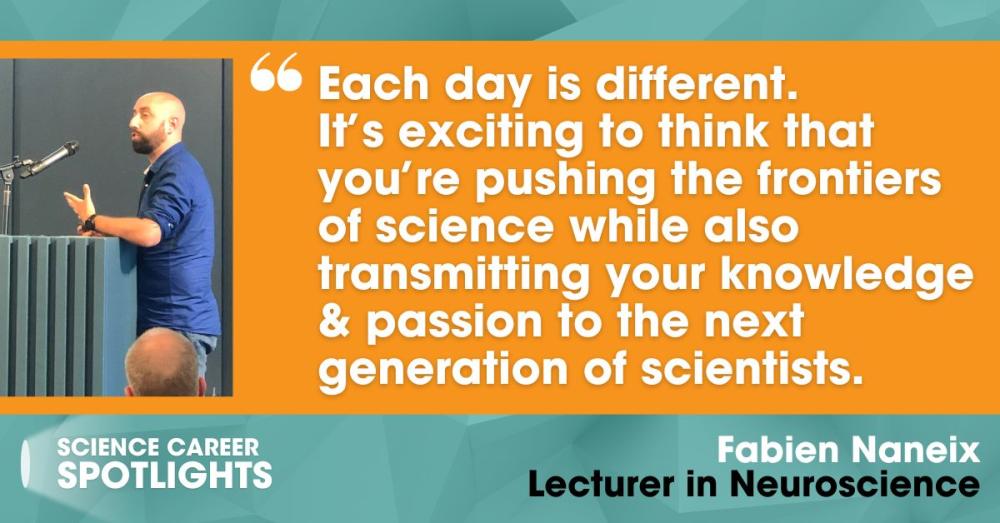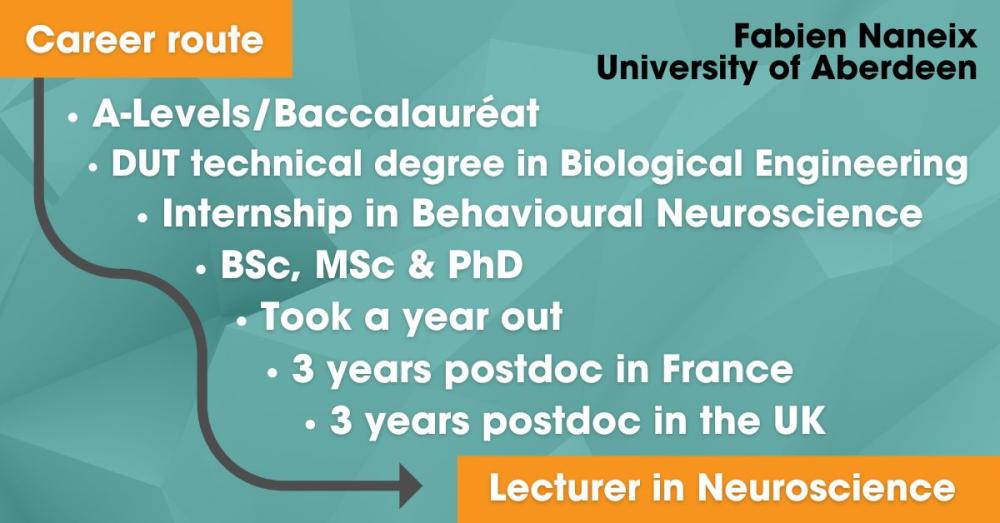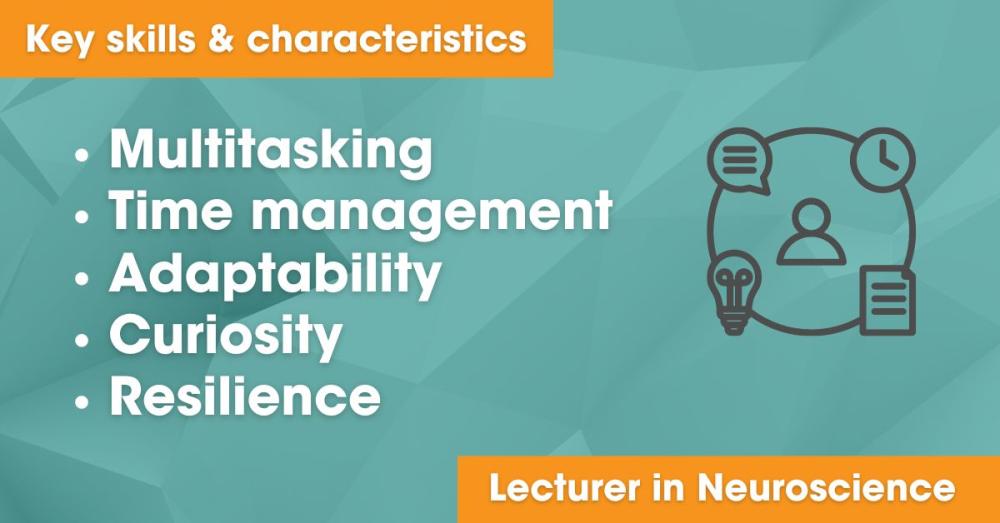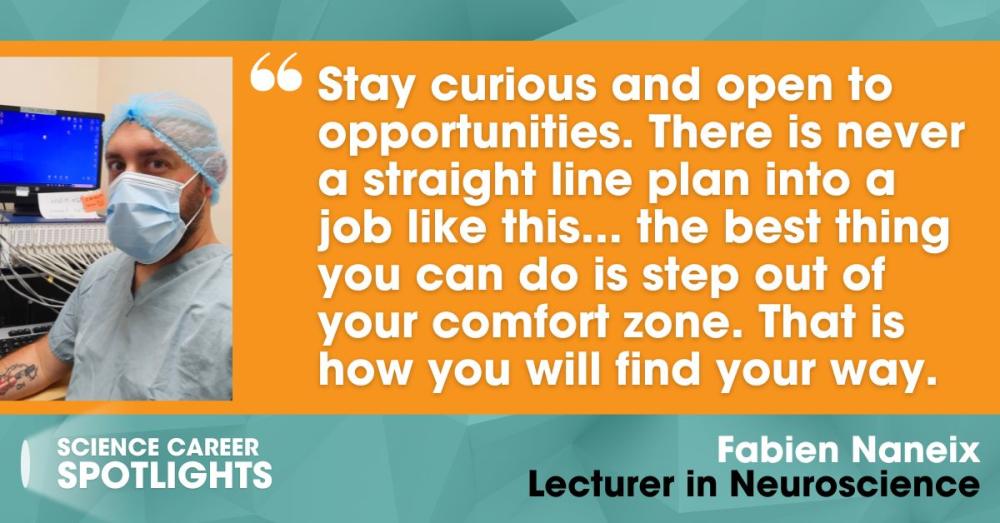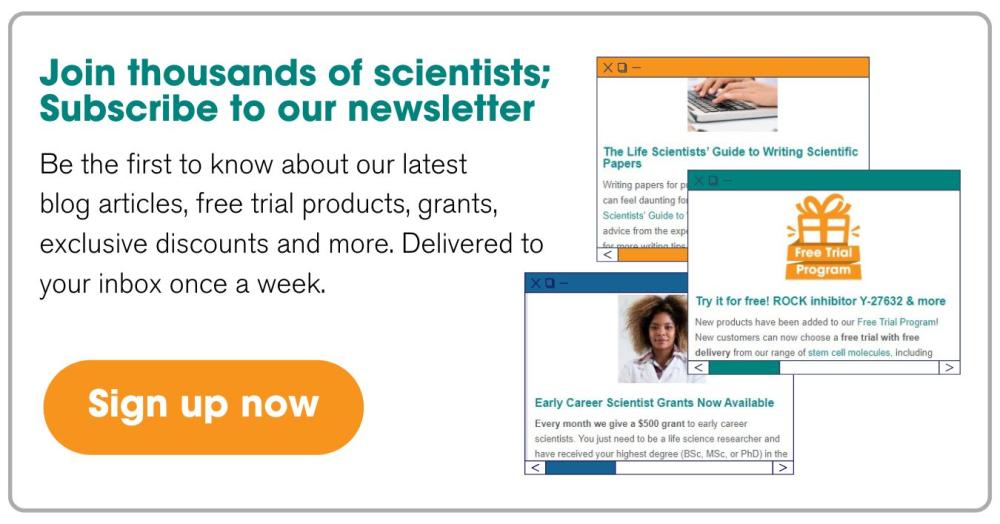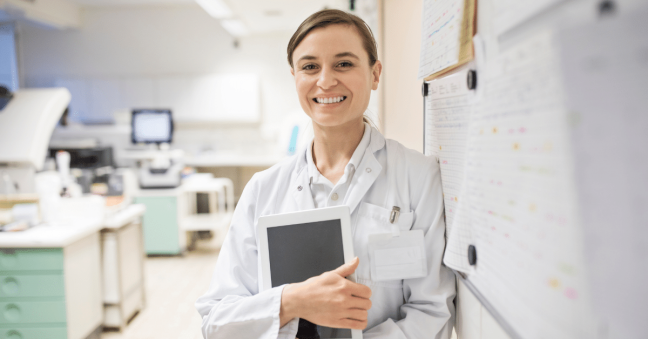Career Spotlights: Lecturer in Neuroscience
Welcome to our brand new Science Career Spotlights series! We’ll be speaking to life scientists in various career roles to learn more about their paths to success! We’ll be digging deep into their early career goals, the decisions they’ve made along the way, and the skills they’ve found most useful for their particular role. They’ll also share valuable advice for early career scientists who are hoping to follow a similar path some day.
Kicking off our series is Fabien Naneix, a Lecturer in Neuroscience at the University of Aberdeen! We first spoke to Fabien back in 2019 when he was working as a postdoc at the University of Leicester. He now runs the Naneix Lab at the Rowett Institute and we were keen to find out more about his route into science and the challenges he’s faced along the way.
Fabien shares valuable advice for those who aspire to become PIs, and the most important skills and qualities you’ll need to succeed as a Lecturer in Neuroscience.
THE ROLE
What does your current job role involve?
Fabien: Since June 2020, I’ve been working as a Lecturer in Neuroscience at the University of Aberdeen. As a lecturer I share my time between research at the Rowett Institute and teaching within the School of Medicine, Medical Sciences and Nutrition. Most of my teaching is during the final years of different biomedical BSc degrees and also in several PG degrees in biomedical sciences and in nutrition. My research is focused on the cognitive and neurobiological bases of motivated behaviours and how they change or may be vulnerable during the life course. As I am attached to the Rowett Institute for Nutrition and Health, a lot of this is actually focused on the control of food choices and the impact of our dietary habits.
What do you enjoy most about the role?
Fabien: How diverse and intellectually stimulating it is. Each day is different and it’s exciting to think that you’re pushing the frontiers of science while also transmitting your knowledge and passion to the next generation of scientists.
THE ROUTE
What were your early career goals?
Fabien: As soon as I started my science degree and then began to learn about neuroscience, I knew I wanted to have my own research group to lead. I was not thinking about the teaching aspect though, but I’ve found it is something which can be really enjoyable.
What route has your career taken? Were there many unexpected twists along the way?
Fabien: If you read my CV it looks quite straightforward but the reality was more complex. After completing my A-Levels (baccalauréat in France) I wasn’t sure if I wanted to study long-term, eg. a PhD (who knows what they really want to do when they’re 17?) so I decided to do a shorter 2-year technical degree called a DUT (Diplôme Universitaire de Technologie) in Biological Engineering.
I left my parents' house in Haute Vienne and moved 300 km to La Rochelle on the Atlantic coast. This was an amazing experience as we had a lot of theoretical content but also a lot of practical research on different aspects of biological and biomedical sciences. This is where I started to learn about physiology and neuropharmacology. At the end of the course you had to do a 2-month internship, and I ended up in Bordeaux doing behavioural neuroscience with Dr Etienne Coutureau. It was him who really convinced me to continue my higher education and try to rejoin the lab later (spoiler: I ended up doing my PhD with him!). From here it was pretty linear for a couple of years as I moved to Bordeaux to finish a BSc, then an MSc and finally did my PhD
Here it becomes more twisty. I think I pushed myself a bit too much during my PhD and once it was finished and I started to look for a postdoc, some social anxiety that I’d been ignoring (or at least keeping under control) for many years resurfaced. I entered a kind of burn-out/depression period and did nothing for a full year, pretending I was looking for something. It was Etienne once again who came to find me and offered me a postdoc role in an environment I knew and would be comfortable in. I did 3 years as a postdoc in Bordeaux before finally deciding it was time for me to explore opportunities outside of France.
In 2017, while I was job-hunting I remember seeing a postdoc offer on Twitter, on the closing date for applications! It was in Leicester, UK with Dr James Mccutcheon who I’d never met before but I knew his work. That was supposed to be for 2-3 years max before I would go back to Bordeaux and apply for a CNRS position. Several more twists occurred here, including Jamie moving to Norway, the closure of the department of neuroscience and finally the COVID pandemic.
I thought about moving to the USA where my partner was working as a postdoc but now with 6 years of postdoc experience I decided it was time to move to the next stage. The opening of a PI position in Aberdeen was the perfect opportunity and that is how I ended up moving even further North to Scotland.
What have been the biggest challenges or decisions you’ve faced in your career?
Fabien: There have been several. Career choices and the delicate balance between personal life/life outside the lab/work life are probably the most challenging decisions any ambitious scientist can make. There is never a perfect or easy option but it’s something we should be more careful about and really pay attention to.
Moving to a foreign country was also a big challenge. I was already a fluent English speaker when I moved but still, a lot of people do not realise how exhausting it is at the beginning, how different a country and its culture can be, and how hard it is to leave your family and friends behind.
Finally, the transition from postdoc to PI was a big test for me. I don't think we are ever prepared enough for how different the role is, and how you have to learn to delegate and organise your schedule. Also as a young PI (I was 35 when I started), you end up in this weird situation where you sometimes feel too old to hang out with the postdocs or PhD students but too young to have enough in common with the more senior PIs.
THE SKILLS
Which transferable skills have been the most useful in your career so far?
Fabien: Multitasking and time management for sure! And the inherent curiosity we all have in science which makes us quite adaptable to various situations too.
Which qualities or characteristics would you say are essential for success as a Principal Investigator?
Fabien: Curiosity, organisation and resilience. Never give up! Yes there will be moments where things don’t go your way, where you are frustrated, where nothing works or everything seems to fall apart. But it is not forever, and the eventual wins will taste better because of it.
THE ADVICE
What’s the best piece of career advice you’ve ever received?
Fabien: Work with people you like and who are nice to work with. It changes everything.
What advice would you give to an early career scientist who hopes to become a PI or a Lecturer one day?
Fabien: Stay curious and open to opportunities. There is never a straight line plan into a job like this and sometimes the best thing you can do is step out of your comfort zone. That is how you will find your way.
THE FUTURE
How do you see your career progressing from here? Where do you see yourself in 10 years?
Fabien: We never know what could happen, but in 10 years I would like to have the lab established and running almost without me. If I do not have to step in the lab it means I’ve succeeded at forming and training a group of people who know what they are doing, who feel that they can be independent and who enjoy working as a team. My partner is also working in neuroscience and one of our dreams is to have a joint lab as co-PI. We are working toward that!
________________________________
More career advice from Hello Bio
For more advice on STEM career options and opportunities, take a look at some of these other great articles on the Hello Bio blog:
- The Life Scientists’ Guide to Applying for Jobs in Industry
- STEM Career Paths for Life Scientists - guest blog by Dr Joanne Kamens
- Academic vs. Non-Academic Science Careers (and choosing the right path)
- Cultivating a Creative Career in Scicomm - guest blog by Dr Renaud Pourpre
- We asked our scientists: what’s the best career advice you’ve ever had?
- To Science, or Not To Science? Alternative Careers For PhDs - guest blog by Dr Lucka Bibic
Share your STEM career story!
Would you like to share your STEM career story with the Hello Bio blog? Did you have an interesting or unusual journey into science? Could your career path inspire others who are not sure what to do next? Get in touch via email to be featured in our Science Career Spotlights series - hello@hellobio.com
________________________________
If you enjoyed this article, why not check out the other resources available on our blog. We are passionate about supporting life scientists including early career life scientists and PhD students - with really low-priced reagents, antibodies and biochemicals, early career scientist grants, and resources to help with both personal and professional development. We know how tough it is - so we hope you find these helpful!
More General Support for Life Scientists
For advice on wellbeing, dissertations, presenting at conferences, wellbeing, PhD support, networking and lots more, we have a huge range of articles to help - just click below:
Save up to 50% on our high purity reagents...
When you get to the stage of planning your experiments, don't forget that we offer a range of low-cost, high-purity agonists, antagonists, inhibitors, activators, antibodies and fluorescent tools (yes - they really are around half the price of other suppliers!) You can use our Quick Multi-Search Tool to search for lots of products in one go, and the range includes:
- Enzyme inhibitors and activators
- Chemogenetic ligands
- Ion channel modulators
- GPCR & ionotropic receptor ligands
- Cell biology reagents & biochemicals
Technical resources
Try our Molarity Calculator: a quick and easy way to calculate the mass, volume or concentration required for making a solution.
Try our Dilution Calculator: an easy way to work out how to dilute stock solutions of known concentrations
We also offer a comprehensive range of technical resources including antibody protocols and methods, product guides and mini-reviews:
And finally, don't forget to check back in with our blog regularly for our latest articles. If there’s something you’d love to contribute to the community, whether that’s an interview or article, drop us a line at hello@hellobio.com
---






